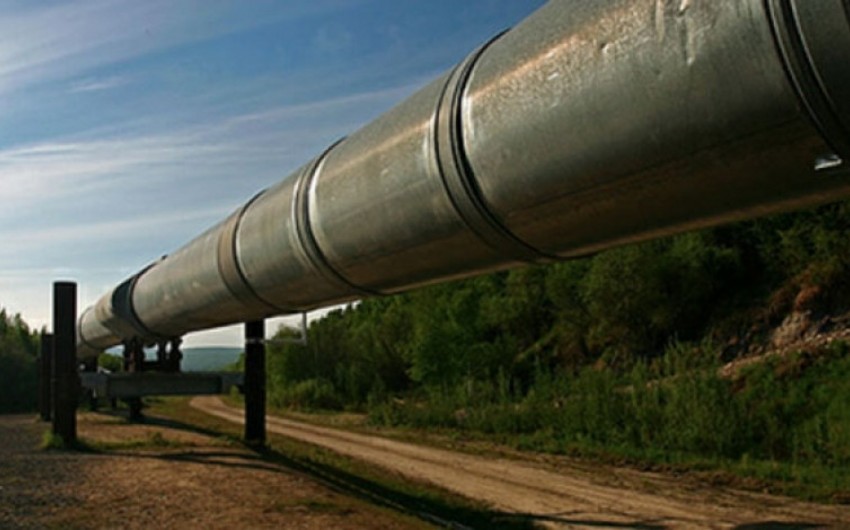The US has voiced misgivings over the Eastern Mediterranean (EastMed) Pipeline, a planned gas pipeline that would ferry Israeli fuel from the eastern Mediterranean to Greece, Report informs referring to Anadolu Agency.
A State Department spokesperson who commented on the matter on condition of anonymity told Anadolu Agency that the Biden administration is looking "critically at new fossil fuel infrastructure projects to ensure US support is not directed to carbon-intensive sources and does not result in future stranded assets as we accelerate the clean energy transition."
The spokesperson listed off a series of energy projects the US is supportive of, including the EuroAfrica interconnector, and proposed EuroAsia interconnector when asked about the EasMed pipeline. The spokesperson noted that both the EuroAfrica and EuroAsia projects "not only connect vital energy markets but also help prepare the region for the clean energy transition."
"We are supportive of some existing projects which contribute to energy security and diversify natural gas supplies, such as the Alexandroupoli Floating Storage and Regasification Unit (FSRU) and the interconnectors with Bulgaria and North Macedonia, which will be completed much sooner, and at a much lower cost, than the East Med Gas Pipeline," the spokesperson said in an email exchange.
The US on Jan. 11 formally withdrew its support for EastMed when the US embassy in Athens said the Biden administration is "shifting our focus to electricity interconnectors that can support both gas and renewable energy sources."
Greece, Israel, and the Greek Cypriot administration inked an agreement in 2020 to build a 1,900-kilometer (approximately 1,200-mile) natural gas pipeline in the Eastern Mediterranean (EastMed) that would connect Israel, the Greek Cypriot administration, Crete, Greece, and ultimately Italy.
Many experts said the estimated natural gas transfer cost would be three times cheaper if the pipeline passes through Turkiye.
Though Ankara and Tel Aviv have expressed willingness to negotiate on such gas transfer via Turkiye, talks have never gotten off the ground.
Israeli Energy Minister Yuval Steinitz noted at the end of last year that the preparation of a feasibility study for the gas pipeline was undertaken by the EU: “100 million euros have already been invested. In a few months or half a year, we will start to promote and implement the construction project. I hope that in five years we will have this pipeline.”
Israel has huge gas reserves, he said, enough to justify, together with Cyprus, not only the construction of one EastMed pipeline, but even "two or three such pipelines."
It is assumed that the EastMed pipeline will allow the start of energy supplies from the Israeli Leviathan field and the Cypriot Aphrodite field through the islands of Cyprus and Crete to the mainland of Greece, and in the future, possibly, to bring gas to Italy. The length of the gas pipeline is 1,900 km, of which 1,300 km will be laid underwater and 600 km on land. The design capacity of the EastMed pipeline is 10 billion cubic meters of gas annually.


 https://static.report.az/photo/c36a9498-7f07-4e4f-9278-cc90fb3d27d5.jpg
https://static.report.az/photo/c36a9498-7f07-4e4f-9278-cc90fb3d27d5.jpg

